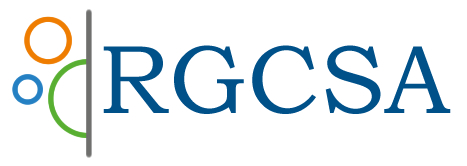Author: Suzel Fuzeau-Braesch
Abstract: Book Review
If astrology has been a source of reflection for thousands of years, it has also been from time immemorial, and indeed it still is, a victim of those practitioners whose venal considerations outweigh their intellectual rigour, and this has contributed to the discredit of the subject with the public at large.
In an exercise of rehabilitation of the subject, this book by S. Fuzeau-Braesch takes a new, popularised approach and its great originality is that it is based on scientific experiment. The disconcerting results quoted in the work are rendered credible by the tests to which the data have been subjected.
For more than thirty years S. Fuzeau-Braesch has combined her knowledge of the stars with the scientific rigour which has governed her professional career (she is a Doctor of Science = D.Sc, and honorary director of research at the CNRS the French National Scientific Research Centre, and directed a university laboratory of biology for more than 20 years).
The stringency of the experimental protocols suggested and the statistical exploitation of the results obtained provides solid evidence to reinforce a certain confidence that one can nowadays have in astrology. It is this methodical approach that is resurrecting astrology as an accepted discipline likely to find its place one day as an academic subject worthy of university study. Amongst the cases investigated, the astrology of dogs clearly demonstrates the obvious objectivity of possible astrological analyses.
Of all the works which have established the existence of a link between the astrological sky at the birth of the individual and human potentialities, this book is distinguished by the fact that the author demonstrates, and does not merely assert, that astrology is reliable and capable of revealing the ego and the aptitudes of an individual, and furthermore, to establish a chronology of the significant dates of a lifetime (without prejudice to the positive or negative aspects of the associated events).
A dominant theme of the book is the need to take into account only those simple elements from amongst the astrological tools which have been verified experimentally. This is obviously a significant point. Interviews with ten well known personalities in France familiarise the reader with astrological analysis in a lively manner, full of interest.
Like any other modern field of human knowledge, astrology must be associated with other disciplines. Here it is notably molecular neurobiology and psychology which, to reveal the inner reality of the individual; sensitivity, talents, charisma, sexuality and social influence while allowing a certain attention to be paid to fateful dates.
To include man thus in a molecular equation involving astral dependence is a modern concept which can surprise or shock. Is one to deny the role of neurotransmitters and hormones in human behaviour? The author, convinced that causality in astrological phenomena exists, concludes with a chapter devoted to hypotheses compatible with current scientific opinion.
Fuzeau-Braesch’s book – a true event in France – is remarkable for its didacticism but also for its generosity in that it makes so much accessible to the layman. It is sure to stimulate interest and perhaps even to motivate young scientists to tackle this subject of research though, it must be admitted, they would do so at their risk and peril given the Cartesian views prevailing in French universities. The questions raised are of great interest in our time, not because they are new in themselves, but because of the kind of investigation to which they can nowadays be subjected.
The style of this work is deliberately clear, stripped down and accessible to everyone and it includes instructions which will allow readers to interpret for themselves the sky under which they were born and to analyse simply and quickly the astral influences prevailing at their time of birth.
Jean Dietrich, Physiologist
Maître de conférence des Universités
Keywords: Intellectual rigour, Fuzeau-Braesch, scientific, statistical, methodical, astrology,dogs, neurobiolo
Notes:
Publication: Correlation Journal of Research in Astrology
Issue: Volume 23 Number 1
Dated: 2005
Pages: 71 – 72
